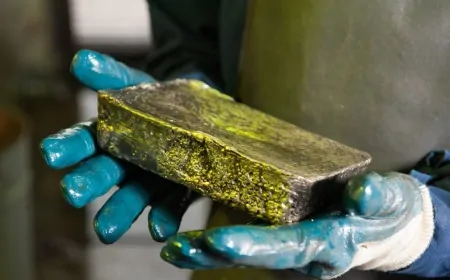US group calls for Washington to investigate MMG nickel deal
The American Iron and Steel Institute has asked the White House to intervene in a $500 million deal in Brazil that it claims could give China greater control over global nickel reserves, though buyer MMG Ltd. has rejected the claims.

Anglo American Plc said in February that it would sell its Brazilian nickel mines to MMG, a Hong Kong listed company controlled by state-owned China Minmetals Corp. The transaction is expected to close this quarter.
In a letter sent to US Trade Representative Jamieson Greer on Aug. 18, the institute argued the potential acquisition would give Beijing “direct influence” over substantial nickel reserves, tightening its grip on a metal essential for electric vehicle batteries and stainless steel.
It’s unclear how the White House would step in to stop the deal. However, the Trump administration has made the revival of US metals and minerals production a key priority, and is currently in tariff negotiations with China. Indonesia is home to the world’s largest nickel industry, having benefited from Chinese-led investment.
“It is essential that the government of Brazil explore alternatives that would preserve market-oriented ownership of these strategic nickel assets and ensure that future access to this critical mineral remains open and fair,” the US lobby group said in the letter.
The request is part of a public consultation launched by the USTR on whether Brazilian trade practices may harm US interests. Brazilian newspaper Valor Economico first reported the news.
The Brailian assets produce ferronickel for stainless steel producers, with Europe representing a major market, said an MMG spokesperson in an emailed response to questions.
“This will be MMG’s first operating nickel asset, and we intend to continue selling products to existing international customers and markets,” said the spokesperson. “This transaction – in our view – will not impact competition.”
The global mining giant started the divestment of its nickel business as part of a broader simplification plan in response to an unwanted takeover attempt by BHP Group. Anglo suffered a major setback last week after a deal to sell off its large Australian coal portfolio fell over with buyer Peabody Energy Corp. walking away.
What's Your Reaction?




























